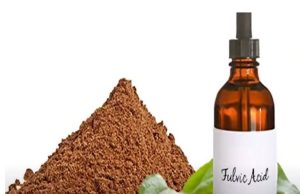Yoghurt, a dairy product made from the bacterial fermentation milk, is one example. These bacteria are known as yoghurt culture. The lactic acid produced by the bacteria gives it its characteristic tart flavour and texture.
Cow’s milk is the most commonly used milk for the production of yogurt. People also use goats and ewes as well as camels, yaks and mares. It can be pasteurised or homogenized.
Yoghurt production began when agriculture was first developed in the Neolithic period, between 10,000 and 5,000 BCE. Mesopotamia is where history begins.
It’s an ancient food indeed! It has been around for centuries. In fact, it was first commercially manufactured in France in the 20th century. Yoghurt has many health benefits. Yogurt is very nutritious. This article will provide all the information you need about yoghurt.
Different types of Yoghurt
There are many types of yoghurt. Here are some examples:
1. Low Fat and Non-Fat
Low-fat yoghurt can also be known as reduced-fat yogurt. It is made from 2% milk. It is made with 0% fat or skimmed dairy milk. Low-fat yoghurts are more caloric than non-fat.
2. Kefir
This liquid yoghurt is what people drink. You can make it at your home. Simply add kefir grains to the milk and let it sit for 12 to 24 hours. These grains are not cereals, they are yeast and lactobacillus bacteria. To make Kefir, people use either goat’s or cow’s milk.
3. Greek Yoghurt
Greek yoghurt has a thick, creamy texture. It is often used in Mediterranean cooking. It is high in protein, but low in calcium. It has a straining step, which is an additional feature compared to regular yoghurt.
4. Skyr
Skyr, pronounced “skeer”, is dense and creamy Icelandic-style yogurt. It has 2 to 3 times the protein of regular yoghurt. It has a consistency similar to strained yoghurt, and a slightly sour aftertaste.
5. Frozen Yoghurt
Frozen yogurts can be a healthier alternative to ice cream. Some have more sugar than ice cream, while others may contain the same or even more. You can choose from sugar-free or fat-free options. Some manufacturers offer many toppings while others make it more like ice-cream.
6. Non-Dairy Yoghurt
These include coconut milk yoghurt, soy yoghurt, and coconut yoghurt. Active cultures in non-dairy yogurts are beneficial bacteria and probiotics. It was traditionally made with cow’s milk. Vegan versions are made from non-dairy plant sources.
Yoghurt’s nutritional properties
The nutritional value of 100g of plain whole milk yoghurt (3.5 ounces) is:
- Calories- 61 kcal
- Water- 88%
- Protein- 3.5 g
- Carbohydrates – 4.7 g
- Sugar – 4.7 g
- Fibre- 0 grams
- Fat- 3.3g
Because of its nutritional content, yogurt is more nutritious than milk.
Yoghurt has many health benefits
These are the top ten health advantages you get from Yoghurt.
1. Weight Management
Yoghurt is high in protein and can help you increase your metabolism. It also helps you burn more calories during the day. Proteins make you feel fuller and last longer. It allows you to reduce your calories and therefore, aids in weight loss.
Research suggests that yoghurt can help prevent weight gain and maintain a healthy body Mass Index (BMI). It also helps to lower body fat because it increases metabolism and keeps you satisfied for longer. It is safe for everyone to consume in order to control their weight.
2. Improves Digestive Health
Your gut health is vital for many reasons. Your body uses the nutrients you eat. If you don’t manage your digestion, you might experience abdominal pain, bloating and indigestion.
Probiotics are found in some types of yogurts. Probiotics are good for digestive health. They prevent bloating, diarrhoea and constipation. Research has shown that yoghurt mixed with fruits increases the nutrient content of both the fruit and the yoghurt by up to two-thirds.
3. It strengthens your immune system
Healthy immune systems produce sufficient white blood cells and other chemicals to fight foreign substances. Yoghurt is a great source of vitamins, and protein. It also contains lactobacillus. Yogurt is good for your immune system and helps you fight off disease-causing microorganisms.
According to the study, low-fat or fat free yoghurt is recommended if you want to increase your immunity. It should also be free of saturated fat.
4. Yoghurt protects against osteoporosis
Osteoporosis, a chronic condition that affects bone strength and increases the chance of fractures, is a serious condition. Osteoporosis is a common condition that affects older people. It can cause back pain, height loss, and stooped posture.
Yogurt’s calcium helps to improve bone health. Calcium plays an important role in the development, strengthening, and maintenance of bone structure. Numerous studies have shown that increasing your intake of yoghurt can improve bone health and decrease the risk of developing osteoporosis. A study found that women who eat yoghurt had a 39% lower risk of developing osteoporosis.
5. Improves Heart Health
Yoghurt is especially good for your heart health. It increases blood pressure and cholesterol. It is high in saturated fat and low in monounsaturated oils. It promotes healthy weight management which is beneficial for heart health.
Recent research shows that people with hypertension who consume two portions of yoghurt per day are less likely to get cardiovascular disease.
6. Reduce your cancer risk
Yoghurt’s anti-carcinogenic qualities can prevent the development of cancer. This is true for breast, bladder, colon and bladder cancers. It can also treat lung cancer using metabolites from bacteria that suppress inflammation in the lungs.
Research suggests that yoghurt consumption may reduce the risk of developing lung cancer, both in those who are at higher risk and those who have never smoked. Prebiotics and probiotics may play a protective role against lung carcinogenesis, according to research. This research also shows that eating fibre can reduce your risk of developing lung cancer by 17%.
7. Depression Alleviated by Yoghurt
A study found that yoghurt has Lactobacillus bacteria, which is a beneficial bacteria for health. These bacteria alter the biome of the body. They can also reduce anxiety and stress through insula activity. Insula is the part of your brain that is responsible for your emotions.
Combining exercise and yoghurt intake can increase your body’s serotonin levels. It can help with depression. You can improve your health by consuming a mixture of yogurt and fermented foods. To fight depression, you should also look for shighrapatan ki dawa in the market.
8. You can recover faster from an exercise program
Greek yoghurt, out of all the yoghurt options, is the most effective for fast workout recovery. Because of its perfect balance between protein and carbohydrates, it is a great post-workout snack.
To regain strength, eat a bowl of Greek yogurt within 60 minutes of your exercise. It releases amino acids that help to repair muscles.
9. Yoghurt Prevents Infections
A yeast infection can cause itching in your intimate areas. You may also experience a burning sensation when you urinate or intercourse, as well as reddening and swelling of your vulva.
Cold yoghurt helps restore a healthy balance between yeast and bacteria in your vagina. It is helpful in treating infections such as Lactobacillus which releases hydrogen peroxide. It also kills Candida, which is the fungus that causes the infection. It is also considered as the bawasir ki dawa recommended by experts.
You might also have yeast infections in your mouth, throat, or gut. These infections can be treated with yogurt. It is therefore suitable for virtually all yeast infections.
10. Benefits for Your Skin
Yoghurt is high in zinc and has anti-inflammatory qualities. Probiotics can also help restore the skin’s natural barrier.
Yoghurt is anti-bacterial and antifungal, which helps prevent breakouts. Yoghurt makes a great beauty ingredient for face masks. It is rich in lactic acid, which acts as an exfoliator. It also helps to prevent the appearance of blemishes and dead cells.
Research shows that home remedies with yoghurt can improve the skin’s texture, moisture, and brightness.
Read Also : Five Benefits of Muesli Cereal Consumption
Apart from this if you are interested to know more about Avocados Surprising Health Benefits then visit our health category.














